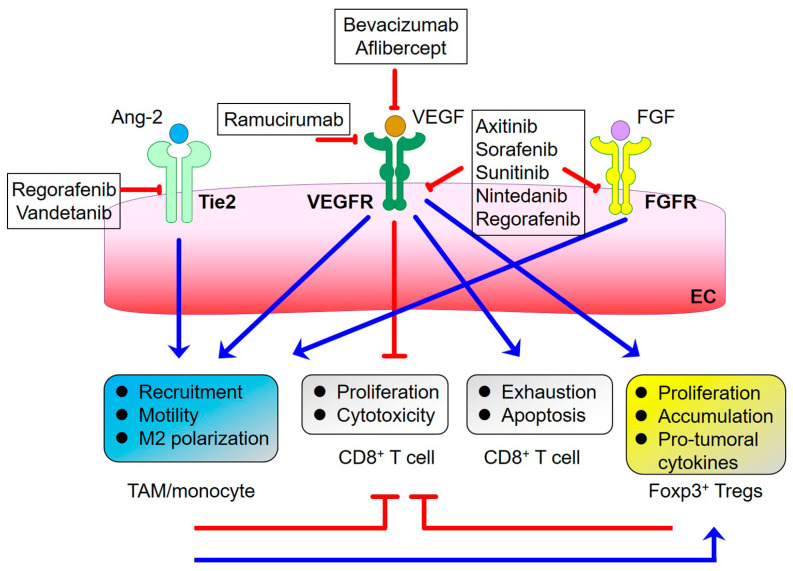Figure 2.
Immunomodulation of pro-angiogenic pathways and the approved drugs that target them. Triggering of VEGFR (mainly VEGFR2) pathways by the cognate ligands promotes CD8+ T cell exhaustion and apoptosis and inhibits their anti-tumor activity. Additionally, the immunosuppressive functions of TAMs and Foxp3+ Tregs are also induced. Tie2- and FGFR-mediated pathways activate pro-tumoral activity by recruiting TAMs/monocytes, which can further promote Treg-dependent tumor-supporting activity. The blue arrows depict activation. The red lines show inhibition. Bevacizumab and Aflibercept are VEGF inhibitory agents. Ramucirumab is the monoclonal antibody targeting VEGFR2. Axitinib, Sorafenib, Sunitinib, Nintedanib, and Regorafenib are tyrosine kinase inhibitors. Regorafenib and vandetanib are multi-kinase inhibitors that can inhibit Tie2-dependent signaling. TAM: tumor-associated macrophage; Treg: regulatory T cell; Ang-2: angiopoietin 2; VEGF: vascular endothelial growth factor; FGF: fibroblast growth factor; VEGFR: VEGF receptor; FGFR: FGF receptor; EC: endothelial cell.

